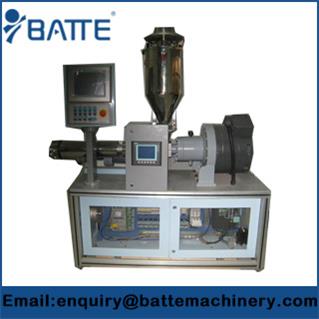volumetric feeder vs gravimetric feeder
There are two basic types of Feeder operation known as Volumetric and Gravimetric. Understanding the differences will help processors to select and implement the type of equipment for their application needs.
Gravimetric Feeding

Gravimetric feeding (Loss in Weight or Gain in weight) provides a means for dosing discreetly by weight or metering continuously. It offers methods for recording and tracking materials used and can provide the means to run recipes for dosing systems.
A gravimetric feeder adds a weigh system and new control scheme to what would otherwise remain a basic volumetric feeder. In contrast, a gravimetric feeder feeds material by weight and provides closed- loop feedback information about the actual weight being discharged over time.
Volumetric Feeding

The principle of feeding volumetrically starts with keeping the auger full. We know the volume that is displaced by the auger in the nozzle, the pitch of the auger, and the rotational speed. So an auger with a one inch pitch that is turning at 100 rpm will move the volume of material forward 100 inches per minute. Varying the rotational speed of the auger provides linear control of the volume of material being dosed.
A volumetric feeder requires a uniform, consistent, and reliable material supply to provide feed accuracies in the 1 to 5 percent range without process feedback.
All feeders, whether volumetric or gravimetric, require a steady supply of material at a uniform bulk density at their input for maximum operating efficiency.